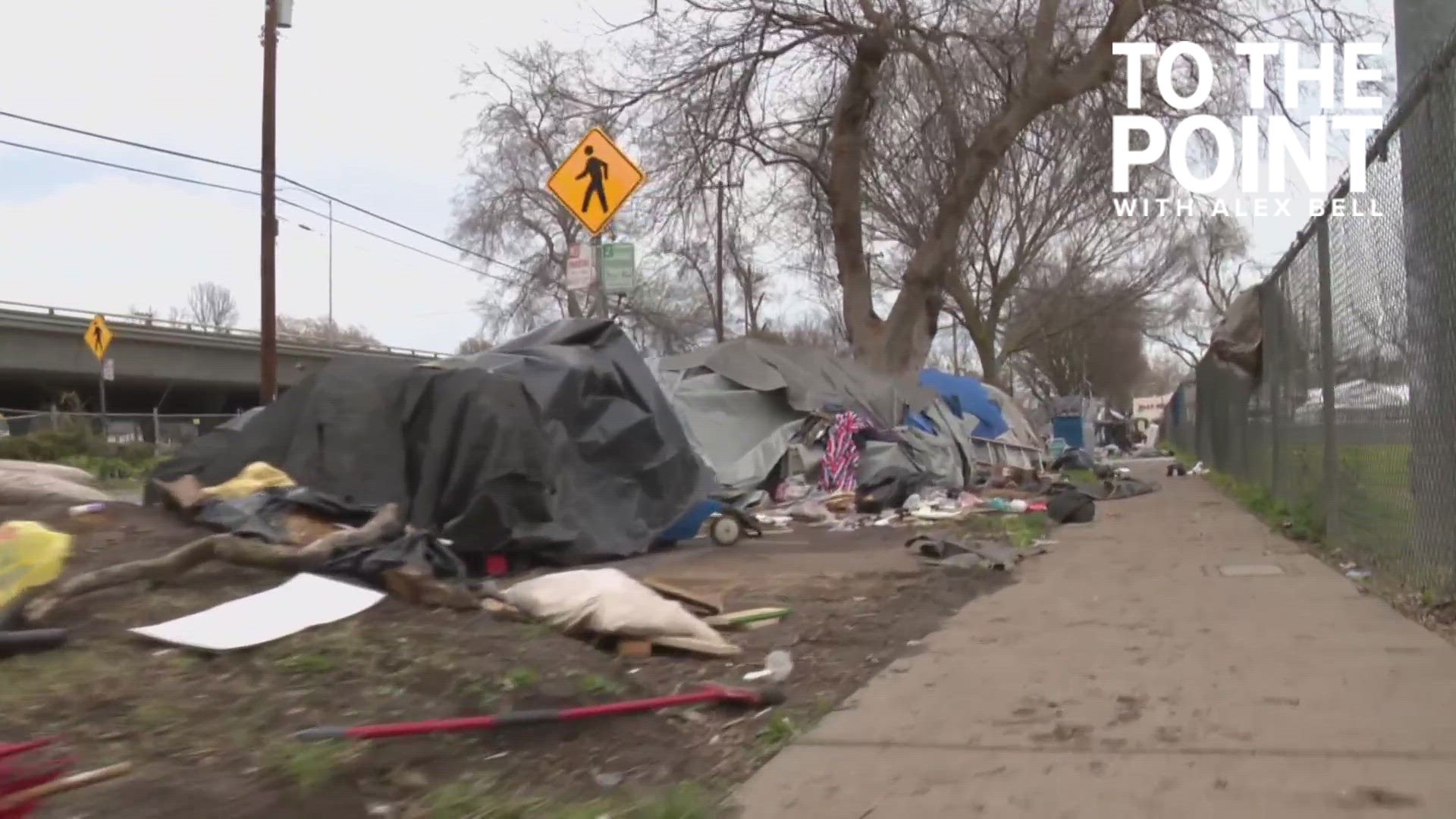SACRAMENTO COUNTY, Calif. — Many counties are in the process of figuring out what the passage of Proposition 1 means for them.
Governor Gavin Newsom’s sweeping overhaul of the state’s mental health system passed narrowly.
It does two main things. First, it authorizes the state to borrow nearly $6.4 billion in bonds. $2 billion of that is to create housing for the unhoused population. The rest is meant to pay for new facilities for mental health and addiction treatment.
The specifics of that spending were left to be decided later.
The other thing Prop 1 does is re-allocate existing funding. A ‘Millionaire Tax’ established in 2004 raises a few billion dollars per year, most of which has gone to counties at 95%, with 5% to the state. Prop 1 would change that balance giving more to the state, with 90% to counties and 10% to the state.
Sacramento County Sheriff Jim Cooper appeared in one of the ‘Yes on Prop 1’ ads.
“Prop 1 creates new facilities to treat mental illness, funds thousands of new mental health professionals and builds housing to get people off the streets,” he says in the ad.
Now that Prop 1 has passed, Sheriff Cooper hopes to fund more social workers for his crisis intervention teams.
“We pair a deputy sheriff with a mental health worker, who go out and contact these folks. It’s been very successful. We need more folks like that,” he told ABC10 Wednesday. “I would love to have dozens of them.”
He says too many people experiencing homelessness with mental health and addiction issues end up in jail or the emergency room.
“Some folks to go jail and get on medication and they get well. It shouldn’t take jail to do that. There’s got to be a place on the outside where the same thing can happen with that,” Cooper said. “Get them the help they need on the forefront and not on the back end.”
Prop 1 is supposed to create, altogether, more than 11,000 new treatment beds and housing units, according to CalMatters. It’s estimated California’s homeless population is about 181,000. That’s a few thousand more than the entire population of Elk Grove, per the 2020 Census.
Jon Coupal is President of the Howard Jarvis Taxpayers Association, which opposed Prop 1.
“I doubt this will make much of a dent on anything,” he said. “We opposed it because we thought it was a misuse of bond financing. If the programs that they wanted to fund were of that importance, then it should be funded out of the General Fund.”
He says bond financing is often used to build specific brick and mortar structures.
“One of the criticisms from the LAO – the Legislative Analyst’s Office - was that the spending plan was very unspecific, and so that's what taxpayers and voters should be looking at: exactly how this money is spent,” he said.
He points out Prop 1 passed very narrowly. As of Wednesday night, ‘Yes’ had 50.2% of the vote and ‘No’ had 49.8%, split by 27,631 votes.
“So much money has been shoveled toward the homelessness issue, with very little results,” he said.
Others wary of the ramifications of Prop 1 include counties, which fear losing funds for important programs.
Butte County told ABC10 the passage of Prop 1 means $6 million taken from early intervention and prevention programs.
“Cut our programs that are vocational in nature, that help people with employment, outreach programs such as our African American Cultural Center, Hmong Cultural Center,” said Scott Kennelly with Butte County Behavioral Health. “We also have programs like Stone Wall Alliance that serve our LGBTQ individuals or homeless outreach teams, among others."
Prop 1 will also help the state fully implement the CARE Court system. Approved by lawmakers in 2022, it’s a new court system to address the needs of people with severe mental illness. It can include – but only after other interventions – putting someone into a conservatorship. Steps before that can include treatment plans, access to housing and court-ordered medication.
“There has to be somewhere for them to go. What we’re doing has not worked,” Sheriff Cooper said.
WATCH ALSO:



















